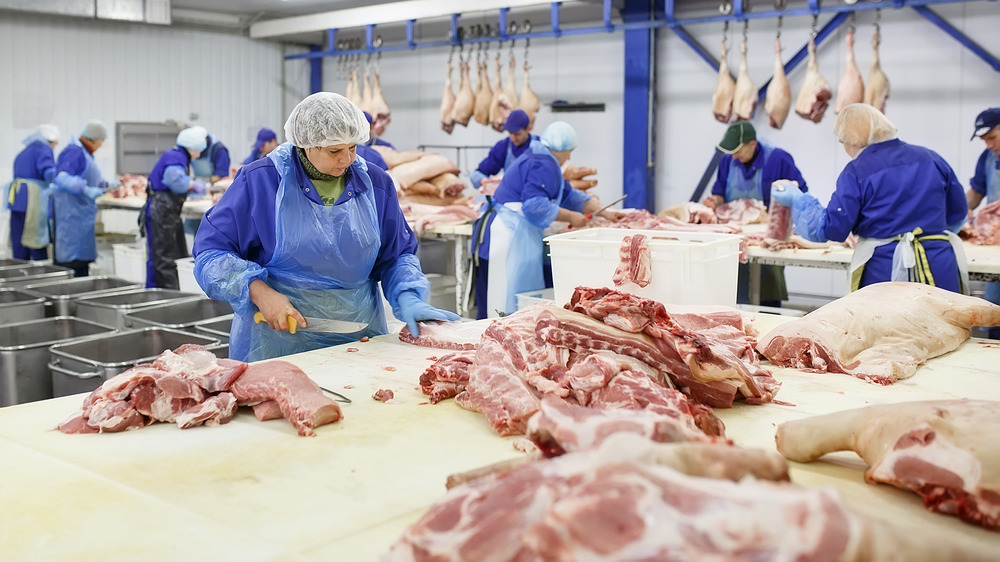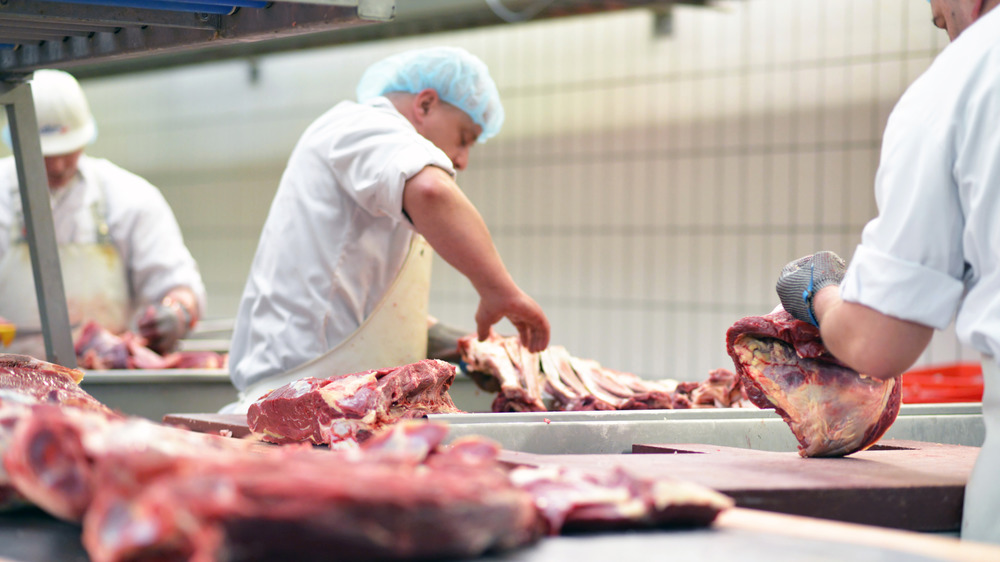Congress Is Opening An Investigation Into Meat Processing Plants. Here's Why
Working in the meat processing industry is no walk in the park. In 2016, workers told NPR they were made to work rapidly and tirelessly in order to process hundreds of animals an hour, so carcasses would be ready for American consumers. Most of the workers are immigrants and resettled refugees, who work in close quarters, under very cold conditions. They also do the same things over and over again, which has lead to an outbreak of health problems called musculoskeletal disorders which manifest as sprains, strains or inflammation.
What was already a challenging, potentially problematic job became even more hazardous in 2020, with the outbreak of the coronavirus pandemic. Time reports that nearly 54,000 workers across just under 570 plants across the country eventually tested positive for COVID-19, and of these, at least 270 persons died. And now Congress wants answers — and they're looking to the country's biggest meat processors: Tyson Foods, Smithfield Foods, and JBA USA to provide them. The situation is so pressing that the CDC had at one point classified meatpacking plants as "a source for the rapid transmission of the coronavirus" (via Select Subcommittee on the Coronavirus Crisis).
Congress wants to take a closer look at coronavirus protections for meat processing plant workers
The group looking into the matter is headed by South Carolina Representative James Clyburn (via Select Subcommittee on the Coronavirus Crisis). He, and other committee members, are asking the country's leading meat processors and the government's Occupational Safety and Health Administration (OSHA) to provide documentation related to both infections and deaths at the plants. It also wants to take a closer look at what kind of worker protection measures were enforced during the Trump administration.
Clyburn noted in his letter that "Public reports indicate that meatpacking companies...have refused to take basic precautions to protect their workers, many of whom earn extremely low wages and lack adequate paid leave, and have shown a callous disregard for workers' health." He believes that this attitude resulted in the mass exposure and subsequent infection of thousands of meat packing workers to the potentially deadly coronavirus. To the OSHA, Clyburn said that there were reports which indicated that the organization didn't enforce worker safety laws, and that it was imperative "that the previous Administration's shortcomings are swiftly identified and rectified to save lives in the months before coronavirus vaccinations are available for all Americans."
The companies under the spotlight, have all defended their records and say they are looking forward to the opportunity to "clarify the situation" (via Food Dive).

